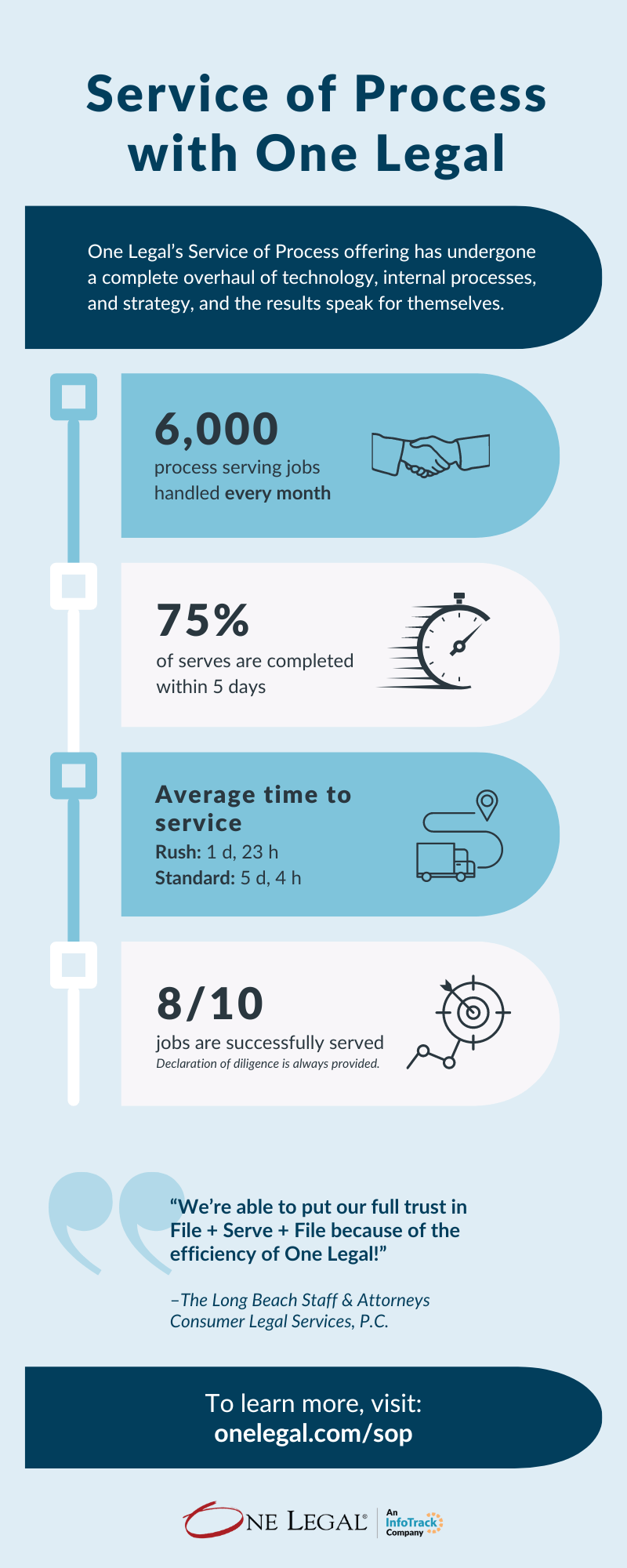The Advantages of Employing Professionals for Process Serving in Legal Situations
Recognizing the Relevance of Refine Serving in Lawful Procedures
Refine offering is an essential facet of legal treatments that guarantees all parties are educated of their legal rights and commitments. By helping with the official delivery of vital lawful files, it promotes the principles of due process and adds to the honesty of the judicial system. However, the nuances of reliable procedure offering prolong beyond plain delivery; they encompass lawful needs and potential repercussions of inappropriate solution. Comprehending these intricacies can dramatically influence the outcomes of legal disputes, prompting a better assessment of the methods that underpin this essential function.
Meaning of Process Serving
Refine offering is a vital part of the legal system, defined as the formal shipment of lawful files to people entailed in a court case. This procedure makes sure that all events are properly informed of legal actions being taken against them or to which they are an event. Commonly, these files consist of summons, problems, subpoenas, and other court-related documents that need the recipient's attention and response.
The value of process serving hinge on its role in upholding the concepts of due process. It assures that individuals have notification of legal proceedings, consequently offering them a possibility to respond or defend themselves. Appropriate service of procedure is not just a step-by-step formality; it is a basic element of ensuring justness and transparency in the judicial system.
Refine offering can be carried out by numerous individuals, consisting of professional process-server, legislation enforcement police officers, or even lawyers, depending on administrative regulations. Each technique of solution has its own criteria and practices, which are important to preventing delays or terminations within the legal structure. Understanding the meaning and feature of procedure serving is crucial for all stakeholders included in lawful process.

Legal Demands for Process Serving
Legal requirements for process serving are important to guarantee that the shipment of legal files sticks to established protocols and is recognized by the court. Each territory has details regulations controling just how and when papers need to be served, which may include summonses, subpoenas, and complaints.
Normally, process-server must be neutral 3rd parties who are not entailed in the instance. They should also abide with state policies relating to service methods, which can consist of personal service, substitute service, or service by mail. Personal service entails supplying papers directly to the recipient, while replacement solution permits distribution to one more responsible person at the recipient's residence or workplace.
Furthermore, procedure servers are usually called for to file an evidence of service, a lawful file that validates the shipment of documents, with the court. This file consists of details such as the day, time, and method of solution, as well as the name of the individual served.

Duty in the Justice System
An important element of the justice system, process serving makes sure that people included in legal procedures are appropriately informed of activities taken against them (Process Serving). This formal notice is vital for maintaining the concepts of due procedure, which mandates that events have the possibility to react to claims made against them. Without reliable procedure offering, the legal system would be rendered ineffective, as people can take part in activities without recognition of pending lawful matters
Process web servers offer a crucial function in securing the stability of the legal procedure. They function as neutral celebrations, providing legal records such as summons, problems, and subpoenas, therefore fostering transparency and liability within the judicial framework. By guaranteeing that all parties are educated, try this procedure serving aids to stop any type of potential unreasonable advantage, enabling fair involvement in legal process.
Furthermore, the professionalism and reliability of process-server contributes to the general public's count on the justice system. Their adherence to lawful requirements and ethical techniques strengthens the authenticity of the judicial process. Inevitably, efficient procedure serving is essential in advertising the guideline of regulation and guaranteeing that justice comes to all individuals involved in legal conflicts.
Effects of Improper Solution
The effects of incorrect solution can substantially undermine the honesty of legal proceedings. When a celebration is not offered correctly, it can cause a host of complications, including hold-ups in case timeline and boosted lawful costs. Incorrect solution can cause the defendant not being conscious of the lawsuit against them, which may avoid them from reacting suitably or presenting their defense. This absence of notification can eventually lead to default judgments, where the court policies in support of the complainant without listening to the defendant's side.
In addition, inappropriate service can render court orders and judgments invalid, forcing the plaintiff to restart the process, which can be both time-consuming and financially troublesome. It can additionally open up the door to obstacles and charms, as the accused may say that they were not correctly notified of the procedures, complicating the legal landscape further.
Best Practices for Effective Solution

Second, timing plays a vital function. Offering files immediately can avoid delays in lawful proceedings and make sure that all parties are informed in a prompt manner. go now Furthermore, working with a professional process web server can enhance effectiveness, as they are educated to browse potential difficulties and make certain compliance with local laws.
Third, keeping precise documents of the solution procedure is necessary. Documenting the date, time, and way of solution can give crucial proof if disagreements emerge regarding whether service was appropriately implemented.
Verdict
In verdict, procedure offering is an essential component of legal procedures, ensuring that all parties are duly notified and afforded the possibility to react. Abiding by lawful demands and finest methods not only supports the principles of due procedure yet additionally enhances the stability of the justice system. The repercussions of improper service can bring about substantial hold-ups and issues, highlighting the requirement for effective process offering in advertising fairness and ease of access in legal disagreements.
The subtleties of efficient process offering prolong beyond mere distribution; they include view it legal needs and prospective repercussions of improper solution.Refine offering is a crucial part of the legal system, defined as the official delivery of lawful papers to individuals entailed in a court situation. Without effective procedure serving, the lawful system would be provided inefficient, as individuals can engage in activities without understanding of pending lawful matters.
Refine servers offer an important role in securing the integrity of the lawful process - Process Serving. The effects of improper solution can lead to significant hold-ups and complications, highlighting the need for effective procedure serving in promoting justness and ease of access in lawful conflicts